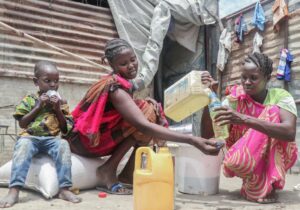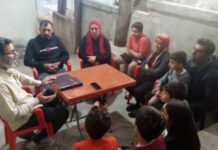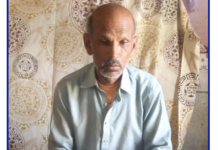Nairobi, Kenya (ANS) – More than seven million people across six countries in East Africa are on the brink of starvation, according to Christian humanitarian organisation World Vision.
The charity warns if the international community does not act now, thousands of children could face long-term health consequences or die.
“It’s heart-breaking that the lives of millions of children in East Africa are at risk due to a perfect storm of conflict, changing or unpredictable weather patterns, and the aftershocks of COVID-19,” said Edgar Sandoval Sr., president and CEO of World Vision U.S. “The long-term harm of malnutrition on children’s development hinders their ability to achieve their God-given potential.”
It is estimated that more than 108,000 people in East Africa are under catastrophic famine conditions, marked by critical acute malnutrition, starvation, destitution, and death, according to World Vision.
This figure is expected to grow as excessive rainy seasons and conflict plague the region. Additionally, almost seven million people are one step away from famine, and as many as 26 million require urgent action to prevent them from sliding into the same acute situation.
“We are marshalling resources to support vulnerable communities across East Africa, to avert the catastrophic effects of hunger, starvation, and loss of livelihoods. We are particularly concerned about the impact on children,” said Joseph Kamara, regional humanitarian and emergency affairs director for World Vision East Africa. “It is not too late to avert the crisis, but it will be soon, if we don’t act quickly and decisively.”
The East Africa region has endured substantial and widespread breeding of desert locusts since late 2019, resulting in loss of pasture and crops. During the second half of 2020, large-scale floods destroyed ready-to-harvest crops of more than four million people across the region. Furthermore, the region is gripped by protracted crises and fragility in several countries compounded by the new conflict in Tigray, Ethiopia, which has dramatically increased food insecurity.
The situation also increases risks faced by women and girls, including gender-based violence, sexual exploitation and abuse. The indirect impacts and aftershocks of COVID-19 also persist for children and their communities in the region, where there is a decline in income opportunities, lost livelihoods, diminished purchasing power, and limited access to basic food and services — all in contexts without welfare safety nets.
“A combination of hazards such as insufficient rainfall, desert locusts, the previous year’s floods that destroyed mature crops prior to the harvest plus the effects of COVID-19 have fermented this critical situation,” said Kamara. “The humanitarian response to each of these issues has been limited by insufficient funding due to competing humanitarian needs in other regions,” he added.
World Vision has declared a multi-country emergency response for Ethiopia, Somalia, South Sudan, Sudan, Kenya, and Uganda. It aims to reach approximately 2.4 million people, including 490,000 children, and needs $60 million to mobilize and extend its hunger crisis response. The organization is already responding with food distributions in multiple countries but current funding cuts and expected tightening of aid budgets are coming at the wrong time.
This challenging period also has long term consequences and could erode human and economic development gains that have been made towards the global Sustainable Development Goals across the region.
“In the face of unprecedented global demands for humanitarian funding, crises in East Africa are receiving limited international attention, despite urgent and life-threatening needs,” said Kamara. “We appeal to national governments, regional institutions, humanitarian actors and donors to urgently address the hunger crisis in East Africa and more forcefully communicate its breadth and severity.”
World Vision currently reaches more than 400,000 children in Kenya, Uganda, and Ethiopia through its sponsorship program. In 2020, the organization reached more than 4.7 million children through its multi-sector interventions in Ethiopia, Kenya, Uganda, Sudan, Somalia, and South Sudan.






